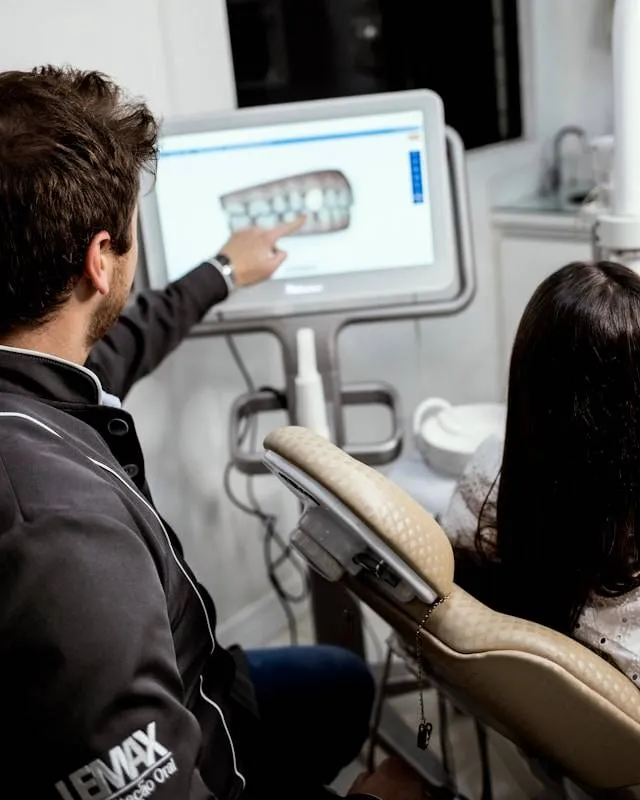1. The importance of early dental care for children
Many parents often think that dental care for children only needs to start when their children have teeth. However, dental experts recommend that dental care should start from the moment a child is born. This is important in building a good foundation for children's future oral health.
Early dental care helps:
- Prevents the growth of harmful bacteria in the oral cavity
- Create good oral hygiene habits from a young age
- Prevent oral diseases such as early tooth decay, gingivitis
- Supports healthy teething
- Helps children feel taste better, thereby eating more deliciously
2. Dental care for children from 0-6 months old
During this stage, although the baby has not yet grown teeth, oral hygiene is still very important. Below are the steps for oral care for babies from 0-6 months old:
- Clean your baby's mouth after each feeding: Use a soft, clean cloth or medical gauze soaked in cooled boiled water to gently wipe your baby's gums, tongue and cheeks.
- Frequency of cleaning: Should be done at least twice a day, preferably after each feeding.
- Cleaning technique: Wrap a soft cloth or gauze around your index finger and gently wipe in a circular motion over your baby's gums and tongue.
- Do not use toothpaste during this period.
- Avoid letting your baby sleep with a bottle in his mouth to prevent early tooth decay.
Note: When cleaning your baby's mouth, make sure your hands are clean and your nails are cut short to avoid scratching your baby's gums.
3. Dental care for children from 6-12 months old
This is the stage when children start to get their first baby teeth. Oral care during this stage needs to be adjusted accordingly:
- Continue cleaning your baby's mouth after each feeding or meal.
- When the first tooth appears (usually around 6-8 months of age), start using an infant toothbrush with soft bristles.
- Brush your child's teeth gently at least twice a day, especially before bedtime.
- Use a rice-sized amount of fluoride toothpaste. Be sure to choose toothpaste specifically for children under 2 years old.
- Gently massage the gums if your baby is teething to relieve discomfort.
- Avoid giving your baby fruit juice or sugary drinks in a bottle, especially before bed.
Tooth brushing techniques for children:
- Place the brush at a 45 degree angle to the gums
- Move the brush in small circular motions
- Gently brush all tooth surfaces: outside, inside and chewing surfaces
- Brush your teeth for about 2 minutes
4. Common dental problems in children under 1 year old
During the first year of life, children may experience some dental problems. Parents should note:
a. Thrush:
- Signs: White patches appear on the child's tongue, cheeks or gums
- Treatment: Regular oral hygiene, use medication as prescribed by your doctor.
b. Pain due to teething:
- Signs: Children are fussy, drool a lot, may have a slight fever
- Treatment: Gently massage gums, use cool chew toys, pain relievers if necessary
c. Early tooth decay:
- Signs: White or brown spots appear on teeth
- Prevention: Proper oral hygiene, limit sweets
d. Oral trauma:
- Cause: Children fall while learning to walk
- Treatment: Take your child to the dentist immediately if there are signs of bleeding or loose teeth.
5. Diet to support children's oral health
Diet plays an important role in protecting your child's oral health. Here are some tips:
- Breast milk is the best source of nutrition for children under 6 months old.
- When starting to eat solid foods (around 6 months old), you should give your baby foods rich in calcium and vitamin D such as milk, yogurt, and cheese.
- Avoid giving children sweets, especially sticky candy.
- Do not give children soft drinks or sugary fruit juices.
- If giving children fruit juice, dilute it and only give it during meals.
- Encourage children to drink water instead of sugary drinks.
6. When should I take my child to the dentist for the first time?
According to the American Academy of Pediatric Dentistry, children should have their first dental visit when their first tooth erupts or no later than 1 year of age. Early dental visits help:
- Early detection of dental problems
- Instruct parents on how to properly care for children's teeth
- Create a habit of regular dental check-ups for children
- Prevent future dental problems
During the first visit, the dentist will examine the child's oral cavity, assess the risk of tooth decay, and advise parents on oral care appropriate for the child's age.
7. Important notes when taking care of children's teeth
- Wash your hands thoroughly before cleaning your child's teeth.
- Use cleaning tools appropriate to the child's age.
- Do not share toothbrushes among family members.
- Replace your child's toothbrush every 3-4 months or when the bristles become worn.
- Do not let children brush their teeth without adult supervision.
- Create a fun, comfortable atmosphere when cleaning children's teeth.
- Be patient and maintain a regular daily oral hygiene routine.
- Set a good example for your children by taking good care of your own teeth.
8. Conclusion
Caring for your baby’s teeth from birth to 12 months of age is an important part of building a foundation for lifelong oral health. By starting early and maintaining good oral hygiene habits, parents can help their child develop healthy teeth and a bright smile.
Remember, dental care goes beyond daily cleanings and includes a healthy diet and regular dental visits. With proper care and attention, you are laying a solid foundation for your child’s oral health throughout their life.
If you have any questions about dental care for babies up to 12 months, please feel free to send your questions via the 'ASK A QUESTION' section on our website. Our dental experts will be happy to answer any questions you may have.
You can also test your knowledge of children's dental care by taking the 'DENTAL QUIZ' game on the website. It's a fun way to learn more about children's dental health and find out things you might not know.





